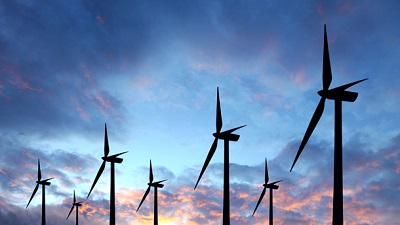Category : Global Warming | Location : Delhi | Posted on 2022-07-08 01:17:38

New Delhi: India could register a gap of $178 billion in revenue from fossil fuels by 2050 as the world moves towards cleaner energy to limit global warming to 1.5 degree Celsius, a report by International Institute for Sustainable Development (IISD) said on Thursday.
Under the 2015 Paris Agreement, countries have agreed to limit global warming to well below 2 degrees Celsius, preferably to 1.5 degrees Celsius, compared to pre-industrial levels.
Six emerging economies – Brazil, Russia, India, Indonesia, China and South Africa – need to start changing their fiscal policies to account for declining fossil fuel use or risk a $278 billion gap in revenues by 2030, which is equivalent to the combined total government revenues of Indonesia and South Africa in 2019, the report titled ‘Boom and Bust: The Fiscal Implications of Fossil Fuel Phase-Out in Six Large Emerging Economies’ said.
These countries represent 45% of both the world’s population and its carbon dioxide (CO2) emissions, 25% of global gross domestic product (GDP), and a significant share of the world’s poor. They are particularly vulnerable to the fiscal impacts of the energy transition because of their high reliance on fossil fuel revenues, the study said.
The report examines the possible fiscal consequences of phasing out fossil fuels in the six emerging economies and suggests strategies for managing the transition.
India currently earns $92.9 billion from fossil fuels which accounts for 18% of government revenue and 3.4% of GDP. The earnings could fall to around 65 per cent by 2050 on an energy pathway consistent with limiting global warming to 1.5 degrees Celsius, according to the report.
By 2050, the overall fossil fuel revenue in the six countries could be as much as $570 billion lower than a business-as-usual scenario where governments fail to phase down fossil fuels enough to avoid the worst climate impacts. The widest gaps are expected to occur in India ($178 billion), China ($140 billion) and Russia ($134 billion), according to the report.
Emerging economies have an enormous opportunity to build more resilient and economically sustainable energy systems as they decarbonize but they must plan ahead to avoid shortfalls in public revenues that could reverse progress on poverty eradication and economic development, Tara Laan, senior associate at IISD and lead author of the report, said in a statement.
“Surging energy prices and demand are generating huge revenues from fossil fuel production and consumption. These temporary, short-term windfall profits should be taxed to fund the energy transition, which, in turn, will boost energy supplies, create green jobs, contribute to economic growth, and ultimately, increase government revenues,” Laan said.
“At the same time, governments must protect vulnerable consumers from high prices and support fossil fuel-dependent workers and communities in ways that don’t hinder the transition to cleaner energy,” Laan added.
The report recommended that the governments of the six countries use fossil fuel public revenue strategically while they can. Most of these countries are likely to receive a short-lived “boom” in such revenues based on current policy settings, which can be augmented by removing subsidies and increasing taxes on fossil fuels, it said.
The funds can be used to support social welfare, clean energy and just transitions, the report recommended, adding that the governments also need to prepare for the inevitable “bust” in fossil fuel revenues through economic and fiscal diversification.
Reforms can be done in a way that accelerates the energy transition and reduces poverty and inequality, it said.
Source: https://www.hindustantimes.com/india-news/india-may-see-revenue-gap-of-usd-178-billion-by-2050-as-world-moves-to-cleaner-energy-101657195873795.html